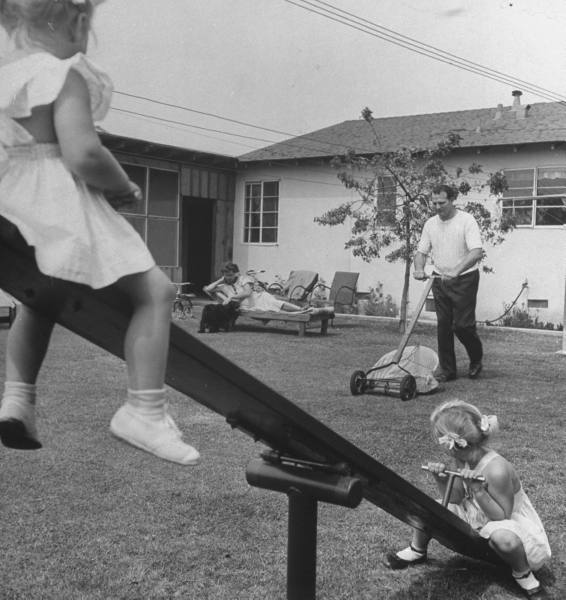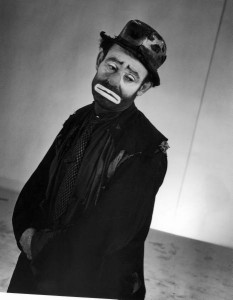 I love a good hoax or practical joke, but the gist of the Dry Erase Board Jenny hoax seems to be, “Ha ha! You thought she was real! But she wasn’t!” There’s no game here, other than, I suspect, an attempt to garner some hits with a hot piece of… Uh, a very pretty girl.
I love a good hoax or practical joke, but the gist of the Dry Erase Board Jenny hoax seems to be, “Ha ha! You thought she was real! But she wasn’t!” There’s no game here, other than, I suspect, an attempt to garner some hits with a hot piece of… Uh, a very pretty girl.
The moral, I suppose, is that you shouldn’t believe everything you see on the Internet. Hardly a new piece of advice, yes? At the end of the day, we come away from this hoax not chuckling, but with a feeling of disappointment that a young woman who’d been sexually harassed hadn’t wreaked revenge on her pig boss. Let me highlight that word: disappointment. I’ll come back to it later.
First, I’d like to address what I’ve just decided to call the “impractical joke.” I had a friend who pulled plenty of impractical jokes that left me more confused than amused or embarrassed. Once he left a note on my desk (I believe he had a female friend write it for him, to achieve a more girly look and feel) “from” another woman at work. The note stated that she knew I enjoyed Nintendo video games (which I did), and maybe we could hook up, play a few at her house, and brush up on our skills. Nudge nudge, wink wink. Something like that. Sexually speaking, I’d hit a dry spell, and I likely would have grabbed most any opening a woman offered me (snicker). However, something didn’t gibe.
A Nintendo date? What the hell is a Nintendo date? If it was sincere, why wouldn’t this woman simply approach me and ask me out? Is this a gag, and if so, what’s the punchline? And again: Nintendo? Maybe it sounds funny in this context. I think I’m making it sound funnier than it was. I was mostly perplexed. I was especially perplexed since I didn’t recognize the woman’s name, and there’s the rub.
I walked over to where my friend and a few other co-workers were standing and asked, “Anyone know what this is all about?” (Note: I’m a lousy subject for practical jokes. I already expect to be handed an exploding cigar or to sit on a whoopee cushion at any given moment).
“I don’t know, Dan. Did you talk to _____________? You should really follow that up!”
“No, because I have no idea who this woman is,” I replied.
“Well, maybe you should talk to her (giggle, titter). I bet you have a lot in common,” he answered.
“Um, I’d have to know who she is first.”
“You know…” and he gestured to another part of the office. “She’s in sales. Over there.”
“Huh?” I replied.
My lack of reaction showed that the jig was up, or that, at least, I wasn’t about to make an ass out of myself. Like I said, practical jokes are wasted on me.
“I wrote it,” said my alleged friend. “This is _________. You know, she has legs like stovepipes.”
I shrugged. I had no clue who he was talking about. Now it was just uncomfortable.
He walked me over to a place where we could see her sitting in her cubicle. She was middle-aged, frumpy, dumpy, and, God forgive me, ugly as sin.
Ah, there’s the gag. Ha. Ha.
Ha.
“You know, if you play a practical joke, it should make sense,” I told my friend. “It shouldn’t be mean, either.”
He shrugged. He probably still thinks he pulled a long con on the level of the Spanish Prisoner.
The Dry Erase Board Jenny gag wasn’t mean, but it wasn’t all that amusing either; more accurately, it was no longer amusing once it was revealed to be hooey. Also, as I said, there was no context; no chance for a sharp individual to know he or she was being gaffed. We assumed this young woman had quit her job, and despite the 20/20 hindsight of the “I knew it all the time” crowd, it wasn’t immediately obvious that we were being gulled. It’s as if I said to you, “I’m going to give you $20.” Then, when you put out your hand I’d laugh and say, “Ha ha! Dumbshit! You believed me!” Impractical. People thought they were reading an amusing story, but they weren’t. Ba-dump-bump. My goodness, it doesn’t even perform the primary practical joke function of pricking at anyone’s pride. I’d add that it mostly worked because of the site’s lack of high profile. The Chive is apparently known for practical jokes, so I guess that’s an argument for taking anything they say with some skepticism… but only if you’d heard of them. Which I hadn’t. I wonder how many others have?
Some might suggest this is yet another lesson that the Internet, if not life itself, must always be approached with a belief that everyone is trying to fuck you blue, and if you ever, EVER fall for a gag, hoax, or scam, you had it coming. I am a fairly skeptical person who isn’t prone to abusing his emotions, but I haven’t reached the point where I could live with such a clenched mind and pickled heart. I appreciate skepticism and pragmatism, but reflexive cynicism is the province of dull minds.
Coming back to the concept of disappointment… While I hate describing anything as a trend (that should be left to the Times, which sees trends everywhere the way paranoiacs see Men in Black 1), Dry Erase Board Jenny typifies a notion that keeps popping up in the media: you cannot fight back. Jenny was fake. A young woman tormented by a chauvinist boss zings him beautifully in public… But she didn’t. She didn’t exist. That ‘s a little sad. 2
Let’s review: We were gleeful when this charming young lady stuck it to The Manâ„¢, or rather the little The Manâ„¢ most of us face day in and day out. Then the rug was pulled out. The redemptive final board that said she knew things would turn out okay (which, largely, is how life works. That’s “okay,” not “perfect,” by the way) was invalidated. In the same day, we learned that after the flight attendant’s final speech and beer-swilling slide to freedom, he was not just fired but arrested. Arrested. Fictionally, more and more TV shows build up adversaries who know all, have infinitely deep pockets, and are untouchable—leading to the grim spectacle of watching Our Heroes in a continual cycle of futility. Nietszche explained that we enjoy watching tragedies because we thank the gods it’s not happening to us. Dry Erase Board Jenny goes a step further brings the tragedy home, saying, “Idiots. You didn’t really think there was hope, did you?”
I dislike the Dilbertian attitude of giggling through hell. “Ha ha! The people in charge are incompetent monsters! Ho ho! We’re doomed to repeat the same monotonous, soul-killing tasks again and again! Hee hee! Nothing can be done! Get back to your cube, swallow your daily shit-lump, and let your supervisor grab your crotch, or The Manâ„¢ will have you wearing a paper hat by day’s end! Hahahahahahahahahaha!”
What? Don’t you get it? 3
Notes:
1. When Megan Jasper of Sub Pop pranked the Times by creating a list of nonexistent grunge slang words the Old Grey Lady published without verification, THAT was funny as hell. Why? Because the Times could have solved it all with a few phone calls. Moreover, the terms were so insanely stupid (Big bag of bloatation? Swingin’ on the flippity-flop? Wack slacks?), it’s difficult to believe the article passed through the hands of the editorial profession’s supposed creme de la creme. Again, it’s all about context.
In the spirit of the grungespeak list, I’ll grant that the invention of the word “HPOA/HOPA” was ingenious. I do suspect the Chive folks ran over to urbandictionary.com and added it because people like me might seek verification. Ha ha! I thought that urbandictionary.com was a viable source! What a dope!
2. Arguably, another tip-off that this was a hoax was that Jenny was an aspiring broker, and as such, would have no conscience.
3. They were wise not to say that “Jenny” was groped, propositioned, or otherwise directly threatened. I’d like to know how many feminists, lawyers, and general activists were ready to rain holy hell on her former place of employment strictly on the basis of her being described as a “hot piece of ass.” I wonder how much the Chive people thought this through?
 So, this morning I walked into my office building, and two nice ladies who work for the company that runs the place stood near the elevators, handing out candy from several large buckets. Loving all things Halloween I was utterly charmed, and I thanked them as I chose a small package of Whoppers. The elevator doors opened, and a coworker and I entered. As the doors began closing a woman took her sweet-ass time getting on the elevator, infuriatingly causing the doors to re-open.
So, this morning I walked into my office building, and two nice ladies who work for the company that runs the place stood near the elevators, handing out candy from several large buckets. Loving all things Halloween I was utterly charmed, and I thanked them as I chose a small package of Whoppers. The elevator doors opened, and a coworker and I entered. As the doors began closing a woman took her sweet-ass time getting on the elevator, infuriatingly causing the doors to re-open.








